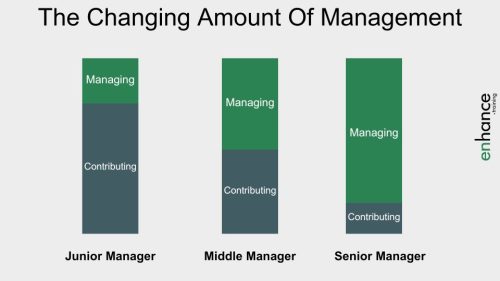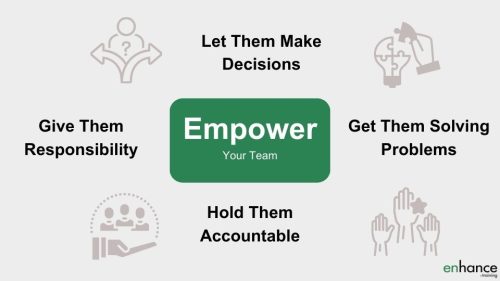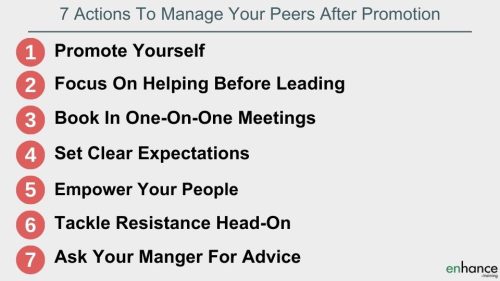7 Actions to Manage Your Peers After Promotion – Transitioning from Peer to Manager

Managing your peers after promotion is a real challenge. This transition from peer to manager is tough for both parties. There will be resentment and resistance, from a least one member of the team. There are plenty of people that struggle with change, and others that will be upset about friendships changing.
It takes time and work to change the perceptions, the behaviour, and the relationship dynamics – to transition from peer to manager. Knowing positive steps you can take to make transitioning from peer to manager easier and quicker is super useful and reduces the stress and frustration you feel and gives you a great confidence boost.
Managing former peers takes courage and confidence. Don’t make this transition from peer to manager any harder or longer than it needs to be. Learn how to manage your peers after a promotion and you will a lot happier and more confident and so will your team be.
The 7 actions to manage your peers after promotion
- Promote yourself
- Focus on helping rather than leading the team
- Book in one-on-one meetings
- Set Clear Expectations & Ground Rules
- Empower your people by playing to their strengths
- Tackle resistance head-on
- Ask your manager for advice
Watch on YouTube
Listen on Podcast
Promote yourself – The first action to manage your peers after promotion
Changing your mental approach to your former peers is super important.
You no doubt will have friendships with your former peers. You will have socialised with them after work and enjoyed the office banter with them as equals. Many newly promoted managers don’t want to lose or change these relationships. That is perfectly natural. Promotion to manager requires you to change these relationships if you want to be an effective manager. Create more space in the relationship. Don’t go socialise in the way you did before. Think of yourself as the manager not the friend.
The other key part of promoting yourself is the work you do. Managing others is a completely new role and it take different skills and a different approach. You will need to make time to learn these skills. Delegate some of your work to your team to free up 15-30% of your time. Trying to do the manager role as well as continuing to do everything you did while a team member is going to end in disaster or a lot of late nights. When you start managing others, only a small portion of your role will be managing, while the rest will remain as a team contributor. Be clear in your mind which is which. Push yourself out of your comfort zone and create time to work as a manager. Work on your manager mindset.
Work on promoting yourself mentally when you get your first manager title.

Focus on helping rather than leading the team – The second action to manage your peers
This may seem counter intuitive. Surely, I have been promoted to lead the team – you are probably saying to yourself. Yes, you have.
As a new manager, resist the temptation to exercise the power of your position. Leading others is a responsibility and your ability as a manager is going to be judged on how the team performs, the team culture, staff turnover etc. It is all about the team now. The best way to earn the team’s respect and trust is to work hard to help the team. Some of the things you should be focused on include:
- Setting direction and expectations for the team as a whole and for each individual – more on this in a bit
- Protecting the team from external pressures so they can work in an efficient, effective and enjoyable way. I.e. they are not getting pulled around by unimportant requests
- Removing problems and dealing with issues so team members can hit their targets
- Supporting and developing team members
When it is clear that you are helping the team in your role as manager, team members will respect and appreciate you, which makes your job of managing a lot easier.

Book in one-on-one meetings with each team member
The third action to Transition from Peer to Manager
Once you have worked out the direction of the team and your manager is happy with how you want to explain this to the team, book in one-on-one meetings with each team member individually.
Explain the team direction and the why behind the team direction. Explain how you see your role and what you hope do and achieve to help each team member. Ask them about their concerns and listen to what they tell you. Plan out what is needed to address valid concerns and visibly take action.
If team members don’t open up to you with their concerns, be patient. They may be waiting to see how you help them and the team or waiting to see if you are going to be a micromanaging dictator. Keep asking and keep working on helping the team. These team members holding back will begin to trust you are going to be a good thing for them and start opening up.
Use your one-on-one meeting to set the tone and set expectations for each individual. Explain why meeting these expectations are important in terms of the team doing well, which in turn means everyone in the team does well careerwise.
I would suggest that you book in a one-on-one meeting each week so that you create a forum for good communication and this gives you the opportunity to develop, support and coach your team members in private.
Set Clear Expectations & Ground Rules – The fourth action to manage your peers after promotion
Share the team goals with each individual and the team overall. Even better is to ask the team to help you define the goals and how the team is going to achieve those goals. This creates ownership of the goals throughout the team.
Explain what you expect from each person. Creating clear job descriptions and clear formal objectives for each person is a key step in this process. If team members don’t know exactly what is expected of them how can they deliver against those expectations. How are you going to assess their performance objectively without clear goals or objectives?
The harder part of setting expectations and ground rules for the team is managing your own decisions, actions and behaviours. The team will be keeping a very close eye on all three. If they align with what you tell them, they will do as you ask. If your decisions, actions and behaviours are not aligned, the team will follow what you do rather than what you say.
Live the rules you set out if you want them to be followed.
Empower your people & Play to their strengths
The fifth action to manage your peers after promotion
As an ex-peer, you are in a brilliant position to know and understand your team members strengths. A big advantage over an external hire for example.
A big fear of most employees is having a controlling micromanaging boss. This type of boss reduces the team members to only doing tasks – not far off being a robot – which understandably is not appealing to many.
Empowering your team members requires confidence, trust and your ability to change how you exercise control.
Control the problems your team members work on. Control the broad parameters that they need to work within. Empower your team members by letting them make decisions, to solve problems by themselves, by giving them responsibility and by holding them accountable to deliver.
Empower your team members by focusing on how best to help each individual do an amazing job – by getting resources in place at the right time, by removing road blocks and problems and by reducing the distractions.
Delegate work carefully to each team member. Do your best to delegate to those with the best skill sets and experience for each task. Delegate to provide great learning and growth opportunities with the right level of support for each person and task.
Play to team members strengths and the team overall will be happier and a lot more productive.

Tackle resistance head-on – the sixth action to Transition from Peer to Manager
You will encounter resistance and pushback from at least one team member. It might be overt such as publicly disagreeing with team direction, goals, or your requests. Or it might be more subtle – such as missing deadlines, doing poor quality work, gossiping, and putting you down behind your back.
If other team members applied for the management position, they will be disappointed they didn’t get it instead of you.
Tackle the resistance head on. In you one-on-one meetings with the team member, state the issues you are seeing and ask them what should be done about them. An example of starting these conversations might include:
“I noted that you had some strong objections to the goals the team had agreed. I was not really sure why you were objecting … can we discuss this in more detail now?
You might listen to their reply and then ask if appropriate something like this:
“I feel that it is me as manager that you are objecting to rather than the goals. Please can we discuss your concerns and I will do what I can to address them”
Seek to understand what the problems or issues are that the other person has with you. Be patient if they don’t tell you initially. Keep bringing up the issues.
Talking through the issues with the other person massively increases the chance of solving the issues compared to ignoring them as a manager.
Ask your manager for advice – The seventh action when managing former peers
You manager is there to help you adjust so you become an effective manager as quickly as possible. This is in their interests as much as yours.
Try to overcome any challenges on your own first. If you are struggling, then it is sensible to ask for help. I appreciate that in some cultures, asking for help can give the impression that you are not coping.
Your manager will figure out there are issues eventually. It is much better to be proactive in dealing with them. Get advice and coaching so you can overcome the challenges quicker and more easily. You don’t want issues to get bad enough that your manager feels they need to step in on your behalf, which will not help you with your team.
Don’t be afraid to ask for help. When you have just been promoted, asking for help and advice is expected. Make the most of this window to gain the most experience and overcome any challenges you are facing.
In Summary
Being promoted to a management position is very exciting and equally daunting. When you have to manage your peers after promotion, promoting yourself and changing the relationships you have with team members is usually the biggest challenge of leading your former peers.
Make this transition from peer to manager as quick and painless as possible by following the actions we have discussed today. As a recap the actions for how to manage your former peers are:
- Promote yourself
- Focus on helping rather than leading the team
- Book in one-on-one meetings with each team member
- Be clear on the new boundaries / establish the ground rules / Set Clear Expectations
- Empower your people / Play to their strengths
- Tackle resistance head-on
- Ask your manager for advice
If you have any questions on “7 Actions to Manage Your Peers After Promotion”, please email me at support@enhance.training and I will get back to you

I remember when I was promoted to manage previous peers – I had one team member that really didn’t want me as their boss. He actively when out of his way to be difficult and try to undermine me. It took me quite a while and a number of conversations before he came round.
I also found the challenges of managing your peers after promotion difficult to bring up with my boss because I didn’t want to give the impression I couldn’t cope.
Take positive actions to make the transition from peer to manager as quick and painless as possible. I wish I had been more proactive when making that first step into management.





